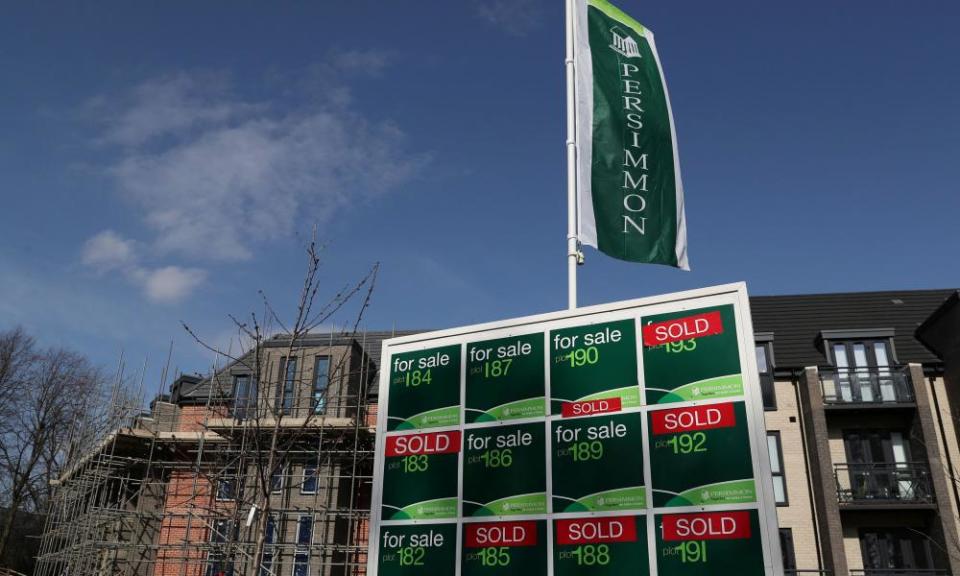Stock market plunge is the time to ditch long-term rewards for CEOs

Three points about executive pay in the current climate should be obvious. First, bonuses should be a non-starter if a company has taken support from the government, for example, by getting the state to pick up a chunk of the wage bill.
Second, bonuses for 2019 should be returned if a company has subsequently cancelled its dividend. Third, it would be outrageous if pay committees make unspoken promises to executives to grant bigger potential long-term jackpots in exchange for some bonus pain now.
The Investment Association, when one gets beyond its hesitant language, seems to have grasped the first two points. Its members, the fund management establishment, can’t force any bonus to be returned or stop any being paid. But a warning about “significant reputational ramifications” at least shows understanding that bonuses and state support don’t mix.
Yet the IA’s guidance was alarmingly fuzzy in the third area – the long-term. The risk arises from share prices that have been battered – but, critically, perhaps only temporarily – by Covid-19. If an executive can load up with share awards at the bottom of the market, he or she has a decent chance to make a small fortune if economic Armageddon does not materialise. It wouldn’t require skill – just fortunate timing.
We’ve seen it happen. Housebuilder Persimmon provided the most glaring example after the 2008 crash: its executives got lucky with an overblown long-term incentive plan, or LTIP, that was priced just before former chancellor George Osborne unleashed Help to Buy and inflated all housebuilders’ profit margins.
With many share prices having halved (or more) with Covid-19, the IA is alert to the risk of more Persimmon-style windfalls if share prices rebound for reasons that have nothing to do with management skill. It’s just that it doesn’t seem to know what to advise.
Pay committees should be “proactive” in setting “appropriate” LTIP awards, it says. Maximum opportunities awards should be “discouraged”. And maybe awards could be delayed until the dust settles – but only by six months, thinks the IA. It is all very wishy-washy. It sounds like music to the ears of an opportunistic chief executive lobbying for something in return for a crowd-pleasing bonus gesture today.
In a rational world, LTIPs would have been abolished a long time ago, as an excellent report by a Commons business select committee advised in 2017. The lottery-like features in these schemes make them a terrible way to measure boardroom performance. The IA had a chance to press for real reform. It’s missing the opportunity.
EasyJet shareholders should back the board not Stelios
Easyjet now has a date for its showdown with Sir Stelios Haji-Ioannou, or SHI as it now abbreviates its founder and largest shareholder, who is definitely not shy. Shareholders will vote on 22 May on Haji-Ioannou’s proposal to defenestrate four directors, including the chairman and chief executive.
Investors should side with the board, as argued here last week. It isn’t sensible to rip up a long-standing contract with Airbus and cancel all aircraft deliveries. The financial penalties would be too great. Besides, the terms allow easyJet to reduce its fleet from 337 currently to 281 by 2023, which isn’t miles away from the 250 demanded by Haji-Ioannou.
You’d therefore expect the board to survive. But it’s not guaranteed. Haji-Ioannou’s family owns a 34% stake, so he wins on an overall 67% turn-out. Other shareholders need to vote, which requires them to be awake.
Admiral is right to keep paying a dividend
Another insurance company thumbing its nose at regulators on dividends? Not really. Admiral is delaying its special dividend, at least not until the crisis passes, but shareholders can have the ordinary payment as normal. That seems entirely fair.
Financial regulators’ warning, as it applied to the insurance industry rather than banks, wasn’t an outright ban. In Admiral’s case, paying a regular dividend doesn’t remotely imperil its solvency ratio. As it’s also handing £110m to customers, to reflect fewer accidents on the roads, it can also claim all main interests are getting something. There is no reason for outrage.

 Yahoo Finance
Yahoo Finance 